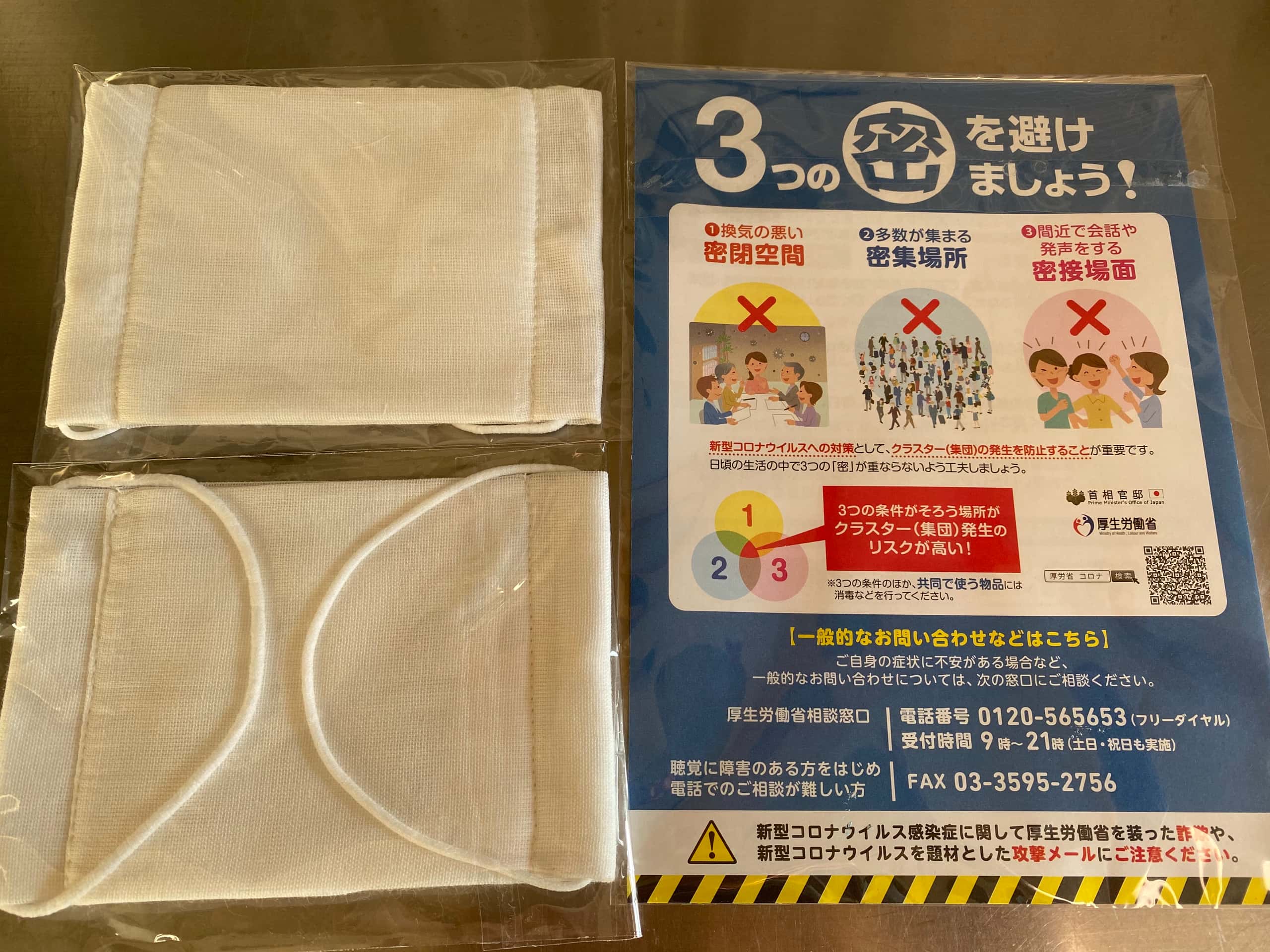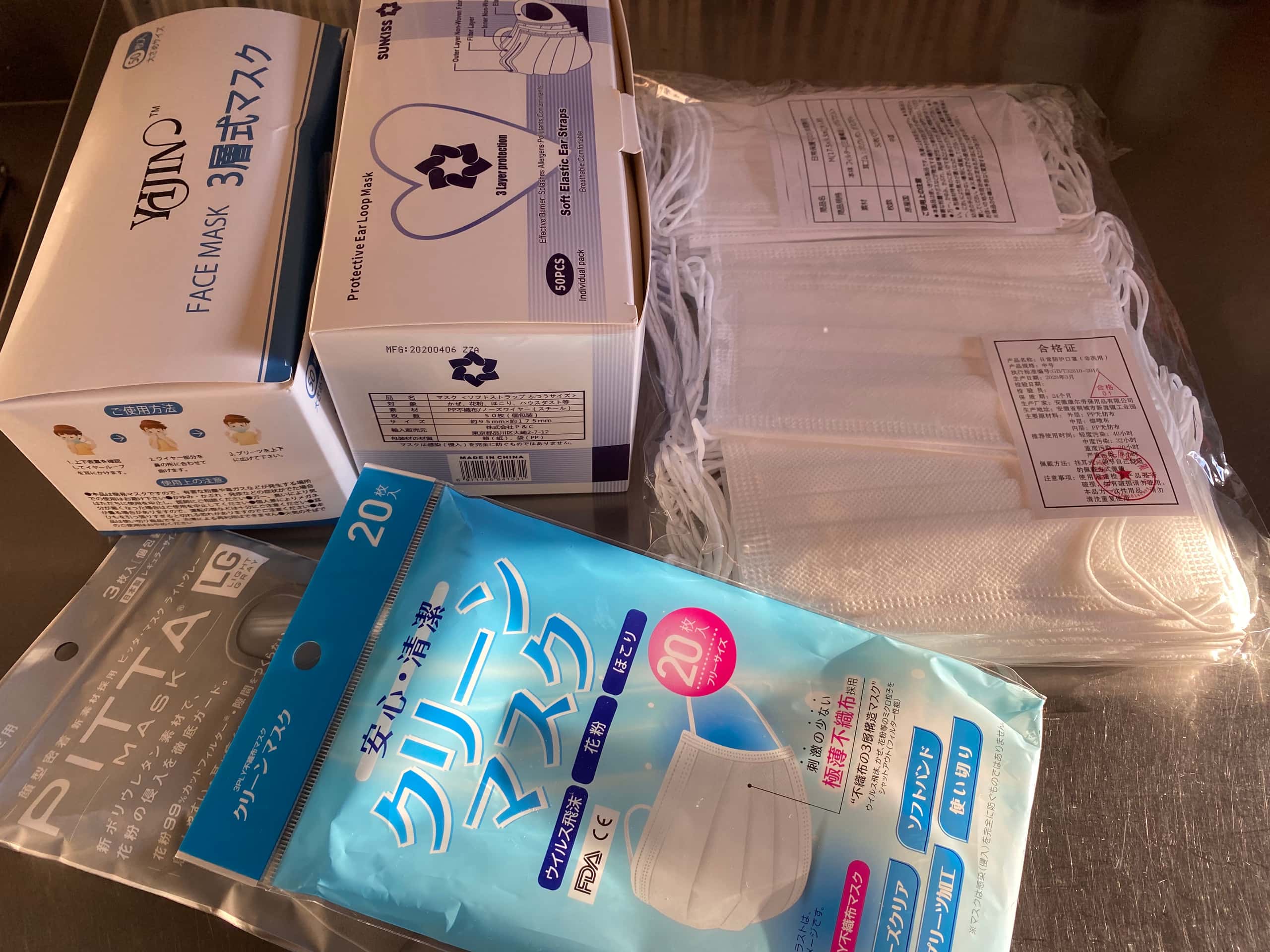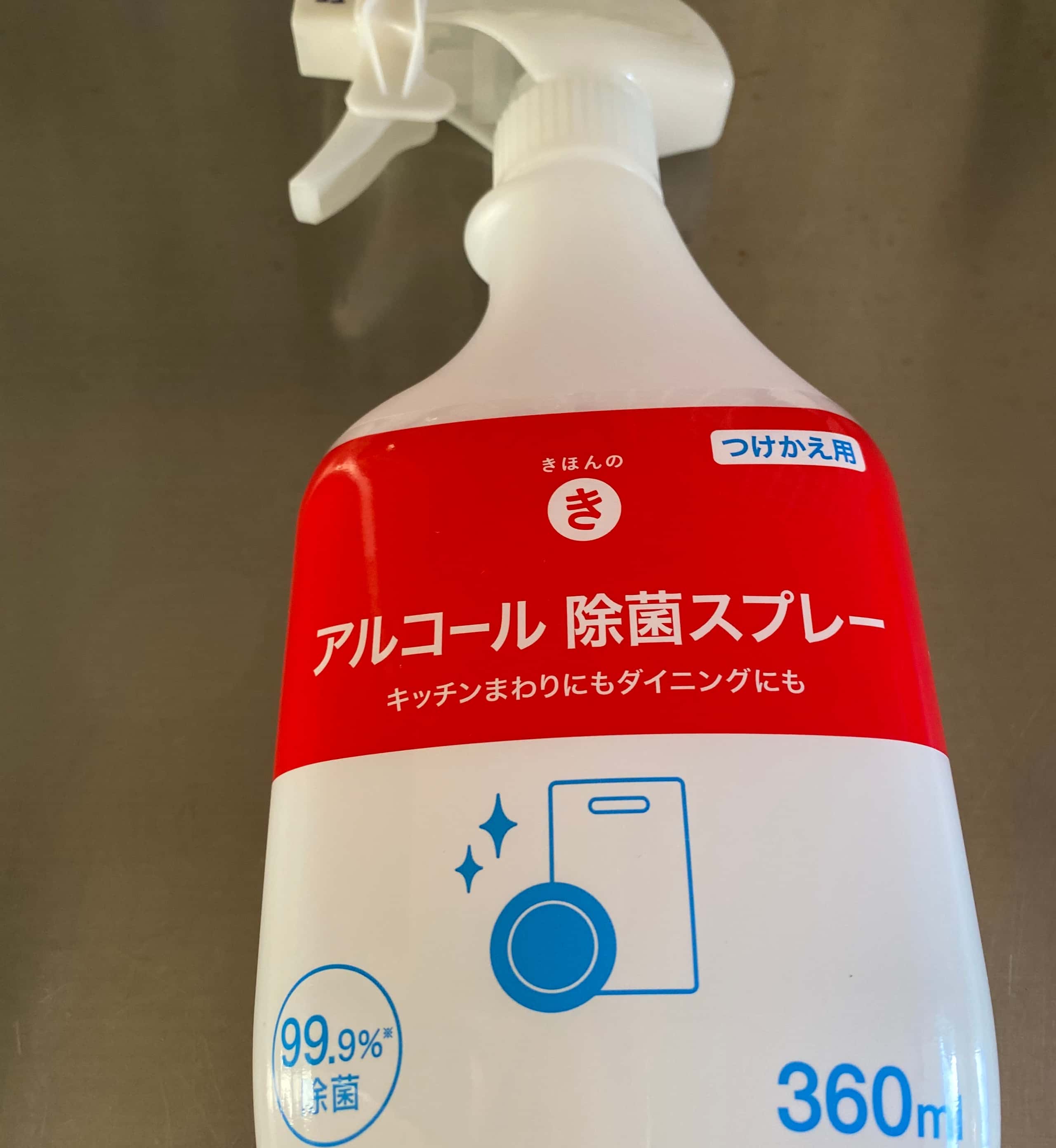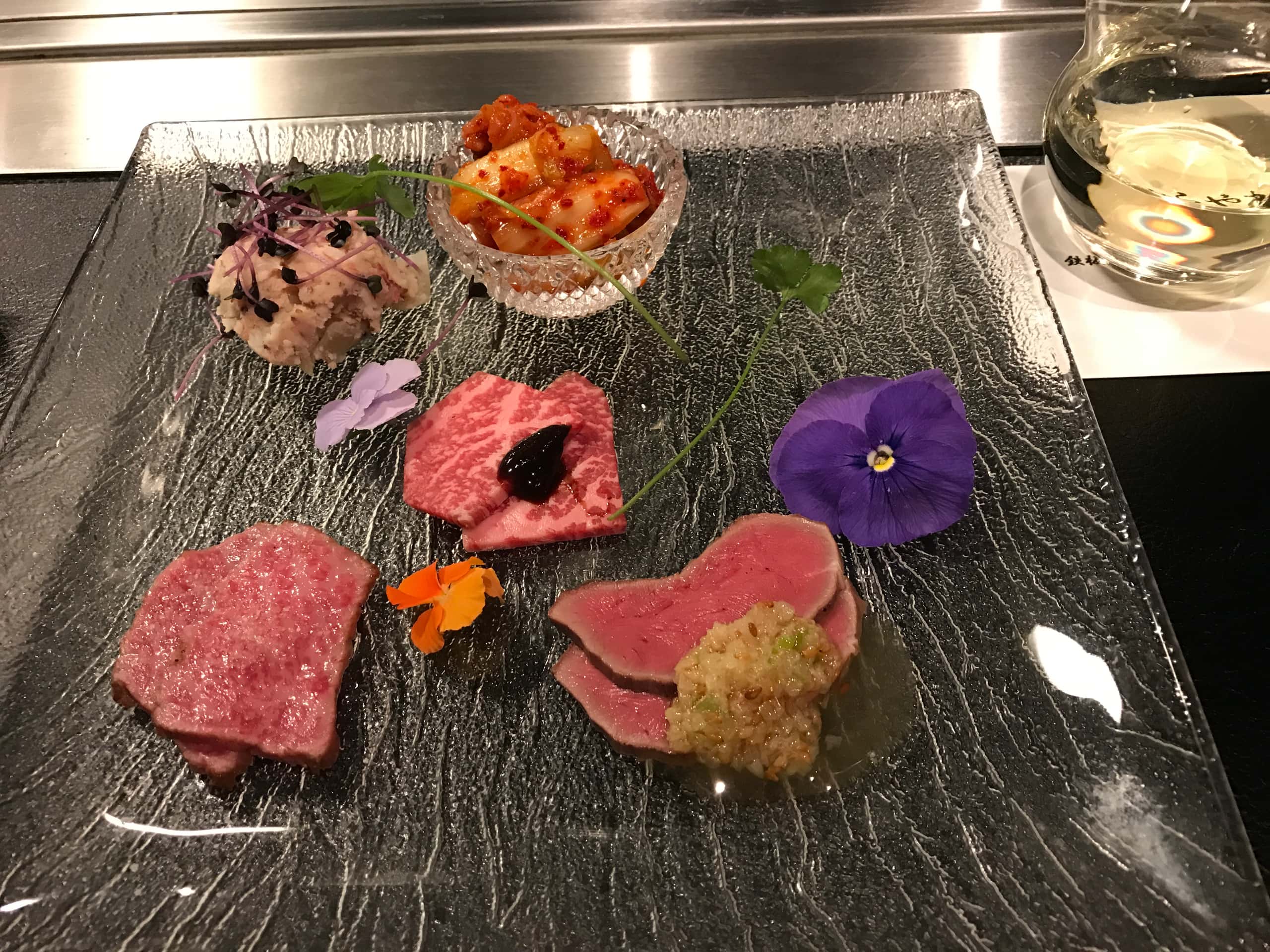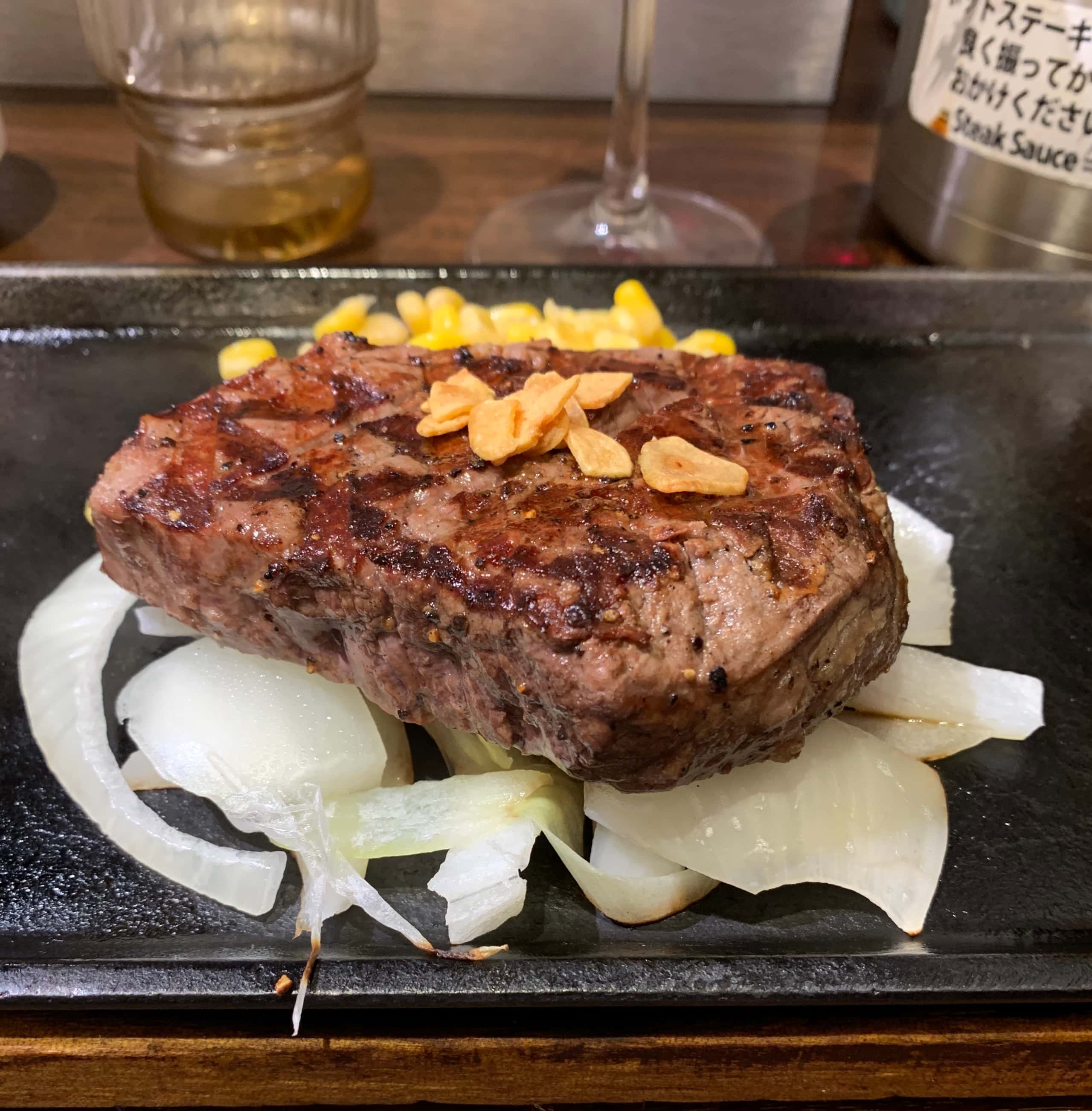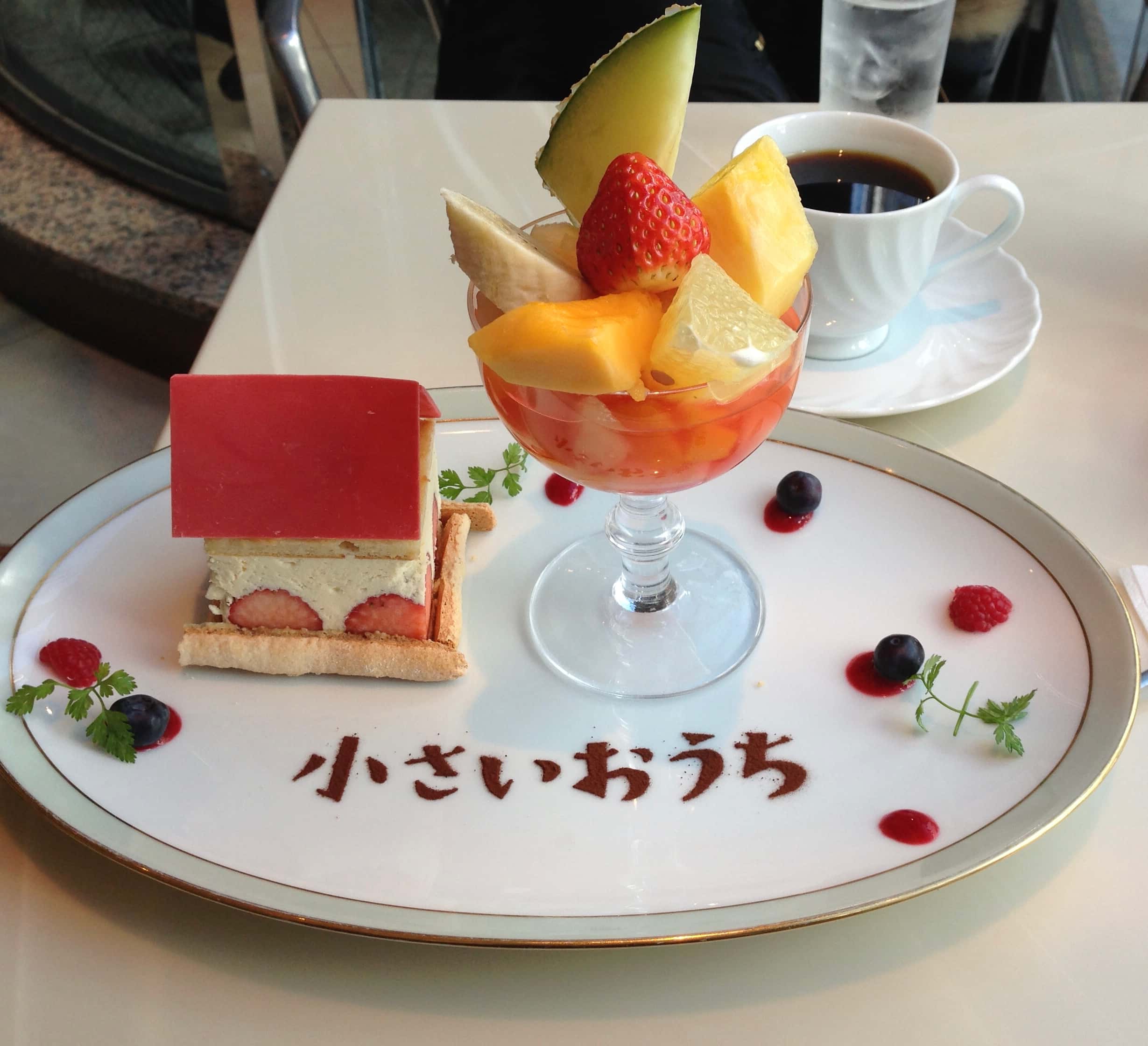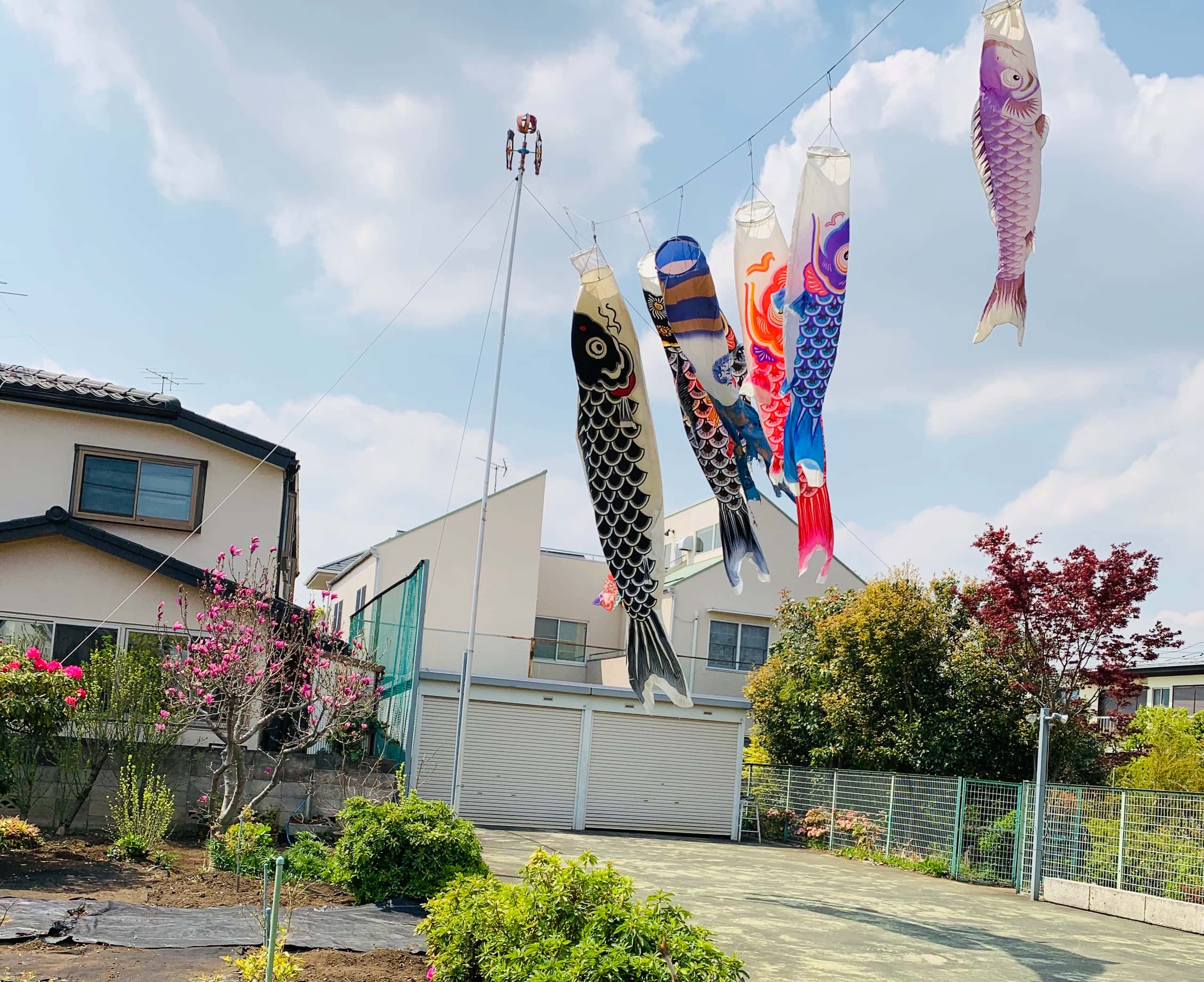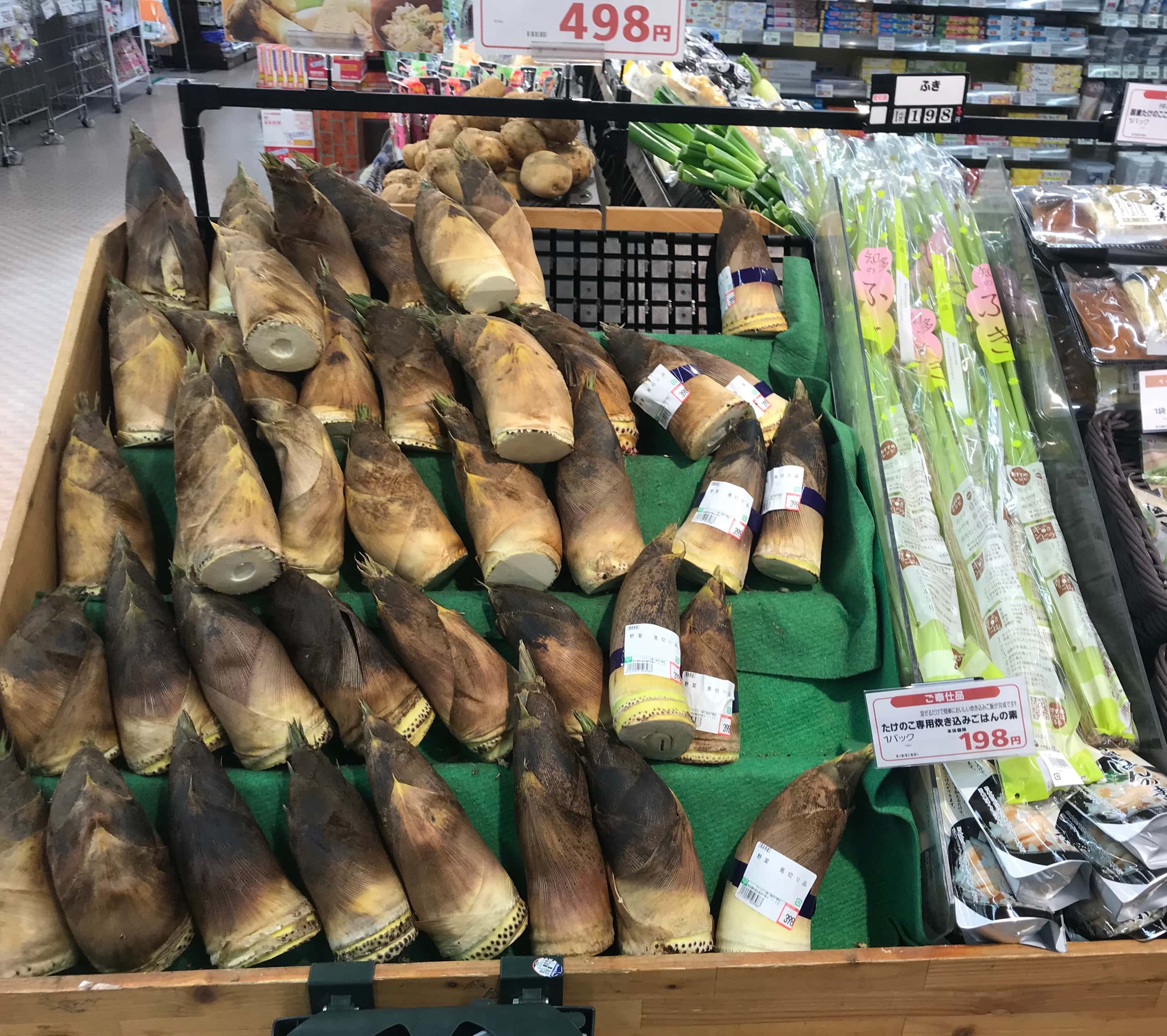Het Landbouwbureau van de Nederlandse Ambassade in Tokio volgt het dagelijkse nieuws dat zich hier afspeelt. Wij houden u op de hoogte door dit wekelijks overzicht dat we van plan zijn elke vrijdag te plaatsen.
Week 22 (25 t/m 29 mei)
vrijdag, 29 mei
Arbeidstekort in Hokkaido leidt tot een lager areaal aardappelen in Japan. De Japanse landbouwsector is toenemend afhankelijk van buitenlandse werknemers, die gebruik kunnen maken van speciale werkvisa. Vanwege de Corona-inreisbeperkingen kunnen zo’n 8.000 buitenlandse trainees nu niet naar Japan afreizen, waardoor de boeren in Hokkaido naar minder arbeidsintensieve gewasteelten kijken.
De totale Nederlandse agro-export naar Japan laat in de eerste vier maanden een kleine daling zien, zo blijkt uit de cijfers die het Japanse ministerie van Financiën gisteren publiceerde. Wel zijn er grote verschillen tussen de producten. Zo daalde de export van zuivelproducten, bloemen, en groente daalden met dubbele cijfers, terwijl vlees daarentegen groeide met 2,5%
- Vlees: +2,6%
- Bloemen/planten: -12,8%
- Zuivel: -14,9%
- Groente: -25,0%
dinsdag, 26 mei
All prefectures now exit state of emergency as Abe aims to revive economy. On Monday the government lifted the COVID-19 state of emergency for the remaining five prefectures. PM Shinzo Abe said the disease was now virtually under control and time to restart the economy while living with the virus. Media opine that the government wished to get the economy moving again as quickly as possible, as Abe feared that criticism of his government would continue to mount if restrictive measures remained in place much longer. A government blueprint for a gradual move toward a ‘new normal’ after the lifting of the COVID-19 state of emergency says that the request to refrain from domestic travel (such as business trip) could be lifted throughout the country on 19 June, and that for domestic tourism/leisure travel lifted from 1 August.
Corona reveals Japan’s problems with low beef/pork self-sufficiency rate. The pork self-sufficiency rate in fiscal year 2019 was a record low of 48.6%. Although domestic production increased slightly, the amount of imports was a record high. Beef also had a low level of 34.6%, the second lowest since 2000. At present, there is uncertainty about the meat trade due to the new coronavirus. During the Corona crisis, domestic (Wagyu) beef prices are very low, but meat imports even grew.
Japan’s CPI for food up 2.1 percent in April. The nationwide consumer price index (CPI) for April 2020 (2015=100) increased 2.1% 105.8 from the same month of last year. Chinese cabbage rose 88.3%, increasing further from March due to the popularity of kimchi amid the spread of new coronavirus infections. Fresh vegetables rose 11.2%. Cabbage increased 48.2%, spinach increased 23.4% and cucumber and peppers increased 15-20%. Japanese leek fell in March, but increased 3.9% in April. Onions fell 19.9% as their prices have remained sluggish. Fresh fruits increased by 8.3%. Apple (Fuji) increased by 24.9%, and strawberries increased by 5.5%. Fresh meat rose by 1.0%. Domestic beef products increased by 1.2% and imported products increased by 2.8%. Boneless pork rib (excluding black pork) rose by 1.8%. Milk and dairy products remained unchanged at 0.0%. Although milk was up 0.8%, yogurt was down 0.6%. Rice prices rose 0.5%. The core consumer price index, excluding fresh food items, was down 0.2 percent to 101.6%, for the first time in 3 years. The drop in gasoline prices due to the spread of new coronavirus infections led to a drop in the core consumer price index.
Week 21 (18-22 mei)
vrijdag, 22 mei
The State of emergency will be lifted today in 3 more prefectures; Osaka, Kyoto and Hyogo prefectures. A decision on the remaining five prefectures, including Tokyo, could come as early as Monday 25 May. The Osaka Prefectural Government meanwhile will lift virtually all remaining restrictions and closure requests, allowing such establishments as bowling alleys and amusement parks to open and restaurants to extend business hours beyond 22h00. Nightclubs will still be asked to close.
In April, Japanese monthly food imports fell 5.9% to \ 634.9 billion (€5,4 billion). Except for meat, which increased 5.6% to 160 billion yen (310,000 tons), it decreased all across the board. Grains decreased by 3.2% to 63.7 billion yen (1.95 million tons), vegetables decreased by 0.2% to 51.1 billion yen (290,000 tons), and fruits decreased by 0.6% to 55.2 billion yen (250,000 tons). Seafood import decreased the most by 18.8%.
Sales in April at convenience stores (CVS) shows a difference between different types of businesses and their locations. 7-Eleven Japan went down 5% year-on-year, Family Mart down 15%, and Lawson's 12%. Seven-Eleven fell the least among the three major companies because, their number of stores in residential areas and suburbs where sales increased is relatively high. Family Mart, which showed the largest drop in the major chains, has a relatively skewed network of stores in metropolitan areas.
dinsdag, 19 mei
More and more people in Japan have started baking to pass time at home as they refrain from, leading to shortages of flour products on store shelves. Sales of butter also increased. Household butter sales will increase by around 160% year-on-year during the period from April to early May. On the other hand, demand for butter for professional use, which accounts for nearly 80% of total demand of butter, has dropped.
JA Kitamirai in Hokkaido, one of the nation's leading onion producing regions, will start strengthening sales of onions for professional and processing use. The annual import volume of Chinese onions was 280,000 tons (2019). About 70% of them are peeled onions and are mainly used for processing and the food service industry. However, in February and March of this year, imports were delayed due to restrictions on the processing facilities, ports, and people in China due to the coronavirus. According to February trade statistics of the Ministry of Finance, the amount of imports from China was 36,159 tons, down 36% from the same month of the previous year. In March, it decreased by 34% to 17,306 tons.
Bakken kan ontspanned hobby zijn
Week 20 (11 - 15 May)
Friday, 15 May
State of emergency lifted for 39 prefectures, excl. Tokyo and Osaka Japan lifted a state of emergency for 39 of the country's 47 prefectures, two weeks ahead of its planned expiration at the end of the month. This should pave the way for businesses to gradually resume. Urban regions such as Tokyo and Osaka, however, will remain under the state of emergency and people will be asked to stay at home.
99% fewer foreign visitors in April
Foreign visitors went down 99% in April due to virus-linked entry bans. Last month, Japan expanded entry bans to a total of 87 countries and regions, including the United States and the whole of China and South Korea. Visitors from China totaled 29, down from 598,896 a year earlier. South Korea: 24 down from 546,368. The United States:296, down from 164,435, and Europe: 58, down from 236,707
Consumers want to buy food with 100.000 yen cash payout
Most consumers want to buy food with the 100.000 yen each resident gets from the government as a cash handout. Consumers see eating at home as important in complying with the request from the central and local authorities to stay home. Demand for livestock and farm products is likely to go up, a move which can support consumption of locally produced products. MAFF will for example restitute the purchase costs of milk in full, when dairy organizations donate milk to medical, social welfare facilities or food banks. The sales of fresh produce to the food service industry in April 2020 was 50% less than the year before. The sales are in May recovering to the 70% level.
Tuesday, 12 May
Partial lifting of state of emergency: Tokyo, Osaka excluded
Japan is arranging to simultaneously lift the nationwide state of emergency declared for 34 out of Japan's 47 prefectures over the novel coronavirus on Thursday. Of the remaining 13 prefectures which have been designated by the government as requiring special caution due to their large number of infections. Businesses across Japan are however slowly reopening even before the government makes its final decision on lifting a nationwide state of emergency.
Pork carcass demand stable
Prices of pork carcass market price in April was maintained at a high level as the demand for home-cooked food increased. The average monthly market price of the Tokyo market was 566 yen excluding tax, which was 68 yen higher than the same month last year. Although there has been a stable supply of imported chilled products, the new coronavirus is affecting local production in supplying countries, like Canada and the United States. The supply of imported chilled products is expected to decline from the latter half of May. Domestic pork carcass prices are expected to remain stable at high prices, and may even be 600-610 yen in May.
SMEs receive 2 million yen cash benefits from the government
The Japanese government on Friday began issuing up to 2 million yen ($19,000) in cash benefits to small and midsize companies whose income has at least halved due to the outbreak of the novel coronavirus. Japan GDP shrinked 3,5% in March.
Clinical trials of coronavirus vaccine expected to start in July
Japan's Prime Minister Abe Shinzo says clinical trials of a vaccine for the coronavirus are expected to begin in the country as early as July.
Week 19 (4 - 8 May)
Friday, 8 May
State of Emergency extended to 31 May
Japan Extends Coronavirus State of Emergency until May 31. The government is considering lifting the state of emergency partially before May 31 as the Corona situation will be evaluated again on May 14.
Record GDP drop expected for April-June quarter
Japan is facing the prospect of a record GDP decline in the April-June quarter. Economists from BNP Paribas predict the scale of the fall to -35%. Another unwanted economic landmark for Japan is that the government debt-to-GDP ratio is forecast to reach an unprecedented 258% due to heavy stimulus spending and falling tax revenues.
Effects of state of emergency on consumer spending
The effect of Japanese state of Emergency on Consumer spending can be divided into three segments: Group A: 52% of consumer spending is largely unaffected by lockdown (food and beverages, rent and utilities). Group B: 18% of spending is strongly impacted (autos and clothing,). Group C: 30% of spending is mostly eliminated under a lockdown (travel, eating/drinking services).
Head vegetables, pork and poultry meat, cut-flowers up
Japanese consumption of head vegetables, pork and poultry meat goes up again. The average price for a head of cabbage in early May was 1,25 euro per kilo; 60 % higher than the average price in the same period. This is attributed to a decline in imports, following the unstable weather after mid-April. The pork price per kilo hit 611 yen, up 30% from the previous month. Cut-flower consumption is recovering, in terms of price as well as volume. Prices of cut-flowers went up for 6 consecutive days, hitting 71 yen per piece, 3 yen higher than the average price over the last five years. This is a substantial recovery compared to April, when the average price for a cut-flower was between 30-39 yen.
Food bank: users up, shortage grows
Despite low prices for eggs and dairy products, Japans largest food bank is paradoxically facing a shortage as the number of users grows. The wholesale price of eggs dropped 5.3% to 180 yen ($1.68) per kilogram on May 1 from a week ago. The food bank in Asakusabashi Tokyo saw for example a doubling in the number of people needing its food packages in April, particularly after the state of emergency was declared, compared with February. Around 70% of new recipients are families with small children, including one-parent families, as children usually fed at school are now at home all day.
Week 18 (27 April - 1 May)
Japan is considering extending the nationwide state of emergency until the end of May in a bid to contain the spread of the new coronavirus, government sources said Thursday.
As a temporary working solution to prevent disruption of trade caused by COVID-19, Japan will accept scanned copies of the original paper certificates for animals, plants and their products to be imported, provided that the original will follow at a later stage. The competent authorities in NL should in that case send a scanned copy (PDF) to PPS/AQS.
Friday 1 May
Incentives for fattening cattle farmers, at least 20,000 yen per head
The Ministry of Agriculture, Forestry and Fisheries will support fattening cattle farmers affected by the spread of the new coronavirus infection. For meat-only breeds, hybrids and dairy breeds, the ministry will subsidize 20,000 yen or more per animal to encourage continued production. Those who receive incentives should work on strengthening the management structure such as analysis of meat quality and improvement of livestock housing.
20% increase in beef imports: Trade statistics in March
While domestic Wagyu beef is struggling due to the deterioration of the sales environment and the closure of restaurants, the import of cheap imported beef is growing even considering the Corona-crisis. The import volume in March is 20% higher than the previous year. Since the end of February, when the government requested self-restraint for large-scale events, the number of customers eating and drinking decreased significantly, and family restaurants and large-scale commercial facilities were hit. Since the end of March, when Tokyo requested refraining from going out on weekends, the number of customers dropped further, and overall sales in March were 82.7%, a decrease more than at the time of the Great East Japan Earthquake (89.7% compared to the previous year).
Pandemic problems creating novel labor fixes for farm, hotel sectors
Disruption to the inbound flow of foreign trainees caused by the coronavirus pandemic has created labor shortages in Japan's agricultural sector and led farmers to turn to workers in the tourism industry as a stop-gap measure. As of the 9th, the number of agricultural technical interns known to the Ministry of Agriculture and Fisheries who may not be able to come to Japan was about 1,900.
Virus pandemic pushes Japan’s shoppers to finally buy online
E-commerce in Japan has long been among the lowest of developed markets. Only 7% of transactions were purchased online in 2018. Japanese consumers require a lot of information before they make a purchase and are extremely loyal to their shopping platform of choice. The Corona-crisis could be first-time where consumers see the merits of e-commerce. After the coronavirus outbreak calms down, more people will be online in Japan. More examples of food-ecommerce in our ABB-article:Coronavirus crisis spurs e-commerce in Japan.
Dutch agro export figures (Jan-Mar) compared to 2019 dropped with two digits, but maintains 2018 level
Japanese customs published their trade figures for the first quarter of 2020. Dutch agro export figures (Jan-Mar) compared to 2019 dropped with two digits, but still appr. on 2018 level. April is expected to be worse.
- Meat: € 30,2 mln. (-10,5%)
- Dairy: € 26,3 mln. (-13,3%)
- Plants and flowers: € 0,5 mln. (-23,6%)
- Vegetables: € 1,2 mln. (-33,4%)
Wednesday, 29 April
Cabinet approved a fresh supplementary budget, to finance 100,000 yen (€850) handout The government on Monday submitted to parliament a ¥25.69 trillion ($240 billion) reworked supplementary budget to fund a package of emergency measures aimed at mitigating the economic impact of COVID-19. The draft budget, approved by the Cabinet on April 20, was boosted from the original ¥16.81 trillion due to a sudden policy shift by Prime Minister Shinzo Abe to provide ¥100,000 to all residents instead of a plan to give ¥300,000 to households whose income had fallen sharply.
Teleworking not yet wide spread
Only 18 percent of people in Japan have stopped going to work due to the novel coronavirus. Many Japanese lack the basic tools needed to work from home, contrary to the ultramodern image of Japan Inc. with its robots, design finesse, and gadgetry galore. The bigger obstacle is Japanese corporate culture, experts say. Offices often still rely on faxes instead of email. Many homes lack high-speed internet connections, and documents often must be stamped in person with carved seals called “hanko”, which serve as signatures.
Even in Golden Week holiday period, food service sector sales expected to drop
The Golden Week Holiday period started, but the government requested to stay at home. In March restaurant sales across Japan already plunged 17.3 percent from a year earlier, the sharpest drop in nearly 30 years, as the coronavirus outbreak continues to take its toll. Sales in bars and Izakaya marked even a 43.3 percent fall. Still they are allowed to be open from 05:00-20:00 and serve alcohol until 19:00. April is expected to be worse. During Golden Week (until 5 May) is for Japan the holiday period were many normally travel around the country, but now stay at home.
Strawberries meant for tourists going into jam
Since 12 April, right after the state of emergency took effect, strawberry growers in Tochigi prefecture, the largest producer in Japan, stopped strawberry picking by tourists/visitors. Every year, some 70,000 tourists flock to 80 greenhouses stretched over 2.5 ha of fields to enjoy fresh strawberries. For April and May and during the Golden week holiday, the growers had counted on some 20,000 visitors. The losses will be between 20-30 million yen. The harvested strawberries are now being processed as ingredients for preserves, although they are good enough for fresh consumption.
Week 17 (20 t/m 24 april)
vrijdag, 24 april
"Plus One" campaign to spur milk and yoghurt consumption
The Ministry of Agriculture kicked off the “Plus One” campaign, calling for households to buy one more dairy product every time they go shopping, such as a jug of milk or tub of yogurt. Donned in a cow costume, an official in Japan’s Ministry of Agriculture issued one humble request to the nation: Drink more milk. With schools and restaurants closed, consumption of fresh milk products has dropped. The Japanese dairy sector has a self-sufficiency rate of 64 percent, and raw milk is mostly used for fresh dairy products.
Food labelling regulation relaxed temporarily
Japan has temporarily relaxed its traditionally strict food labelling regulations to help accommodate food manufacturing firms that need to make adjustments to production processes or raw materials in their production chains as a result of the COVID-19 pandemic outbreak.
Government to launch a mechanism to serve melons and beef at schools
The government will establish a mechanism to provide domestic products such as beef and melons to be served at elementary and junior high schools throughout Japan. The government will support farmers and make food education opportunities for children to learn about local specialty products. When local governments use branded ingredients, the government will subsidize all expenses in excess of the regular meal costs. The Ministry of Agriculture, Forestry and Fisheries has added 140 billion yen of related expenses to the supplementary budget for FY2020.
Fresh produce wholesalers plans online sales
Tokyo vegetables and fruits wholesale market has developed new plans to online sell vegetables and fruits. Aoyama Flower Market, operated by Park Corporation, has begun selling cut flower sets that support the production areas at its online shop following the national closure of its store due to the declaration of an emergency. KOMPEITO, which provides vegetable to offices, has started a home delivery service for delivering salads and side dishes made mainly from domestic ingredients to individual homes for a limited time. The Ryohin Keikaku Project, which develops MUJI products, began selling roses and other items that that have lost sales destinations out due to the suspension of events in order to support flower growers affected by the new coronavirus.
woensdag, 22 april
Only 18% of Japanese stopped going to work due to COVID-19
Only 18 percent of people in Japan have stopped going to work due to the novel coronavirus, the lowest level in 26 countries and territories covered in a recent survey. However, 87 percent of Japanese respondents fear catching the virus, which causes the COVID-19 pneumonia disease, up from 66 percent in mid-March, according to the survey conducted by the British research firm YouGov. Only Finland had an equally low percentage of people not working due to the virus, and only Vietnam topped Japan in terms of people worried about contracting COVID-19 at 89 percent, the poll showed. Sixty-eight percent of respondents in Malaysia and India said they work from home, followed by 66 percent in the Philippines and 56 percent in China. The United States stood at 32 percent.
Japan to extend visa suspensions until end of May as virus spreads
Japan will extend its suspension of visas held by foreign nationals to the end of May, a government source said Tuesday, having deemed it too early to lift travel restrictions meant to prevent the coronavirus from spreading. The Foreign Ministry announced on April 1 that it was suspending visas and short-stay visa waivers for people from more than 100 countries through at least the end of April. Foreign travelers have almost completely stopped coming to Japan and dropped to 0.1% of pre-coronavirus levels. Just 85 visitors came to the country from overseas on average each day in the most recent week, down from 87,000 a day in January.
JA group starts Facebook campaign to offer a weekly introduction to demostically grown flowers
JA Group posts pictures and explanations of the meaning of a seasonal flower every Thursday to inspire viewers to decorate their homes with flowers. The campaign is part of JA Group’s flower promotion project ‘Fine Flowers for All’ in support of flower growers. The first flower featured was the gerbera (Meaning in flower language: hope and step forward).
maandag, 20 april
Tulips snipped to prevent crowds at Chiba Festival
Authorities snipped 800,000 blooming tulips in eastern Japan to stop crowds gathering at a cancelled annual flower festival.
McDonald's Japan says it will close over 1.900 the dining areas of its restaurants in 13 prefectures that are under the highest alert for the coronavirus pandemic.
Strawberry tourism in dilemma to contitue its business
Strawberry tourism farms are put in a predicament due to an emergency declaration caused by the spread of new coronavirus infection. Even if the number of customers has drastically dropped and income has sharply declined, the burden of repayment of debts and fuel costs will not change. As the demand for refraining from going out spreads nationwide, farmers struggle with the conflict that they have to continue operating for their daily lives.
Japan's top airlines cut half of their domestic capacity
Japan's top airlines are operating at nearly half their domestic capacity even though the coronavirus outbreak has left seats on flights mostly empty, amid a lack of clear government directives on the functioning of transport infrastructure in the crisis. Japan began mandatory temperature testing on Friday of all passengers departing on domestic flights from Tokyo's Haneda airport as part of measures to curb the spread of the novel coronavirus from the capital, which has recently seen a significant increase in new infections.
Week 16 (13 t/m 17april)
vrijdag, 17 april
Japanese economy 2020 will decline with 5,2% (IMF) Its worst downturn since 2009 at the height of the global financial crisis triggered by the collapse of Lehman Brothers the previous year.
Abe expands COVID-19 state of emergency to all 47 prefectures, stressing the need to slow the spread of the disease through reduced social contact ahead of the Golden Week holidays that begin at the end of the month. The duration of the declaration remains unchanged; it will be in place until 6 May. New guidelines should enable farmers, wholesalers and others in the food supply chain to continue with production, distribution to markets, and sales of farm products at shops. It is uncertain at this stage whether restaurants and those in the food service sector in the 40 prefectures can continue their operation, as it is up to each Governor to decide on basic measures how to comply with the guidelines under the state of emergency, set out by the central government.
Government to distribute 100,000 JPY to all. PM Shinzo Abe on Thursday took the extremely rare step of instructing his government to rewrite the supplementary budget already approved by the Cabinet so as to include outlays to distribute cash payments of 100,000 JPY (855 EUR) to everyone, instead of handing 300,000 JPY (2,565 EUR) to households that have seen a sharp decline in income. Some observers say Abe used the expansion of the state of emergency to the entire nation as an excuse to try to put a positive spin on the policy change.
Average price of processed foods is rising. Not only the balance of supply and demand but also self-restraint of sales advertisement flyers which has been exercised by many retail chains since the end of March, seems to have had an impact. According to data from KSP-POS the average price of processed foods in March increased by 3.4% year-on-year. The average price of all frozen foods also increased by 2.9%. Retailers in Japan are struggling to continue operations, a week after the Japanese government declared a state of emergency over the new coronavirus outbreak, with employees facing overwork due to labor shortages and stress associated with infection risks.
Production sites of Gerberas are hit hard by the state of emergency the sales of gerberas went down by 30% in March due to plummeting demand. Price of gerberas plummeted to 10-19 yen per piece, after 8 April. On 15 April, the price was 15 yen, 10 yen lower than the previous year. Since the usage fee for the grading facility is 11 yen per gerbera, nurseries are incurring net losses at the time of delivery to the facility. The supply of Gerberas seedlings from abroad is another problem. JA Fukuoka in Yame reported that it’s for example unclear when the order from the Netherlands can be delivered. Gerbera seedlings ordered from a Dutch seed company, but to be delivered from India, have been delayed due the measures in India. Further delays may be caused by the limited air cargo capacity (hence high prices) and longer custom clearance procedures at the airport. International flights to Japan have been concentrated on Haneda and Narita, and the Plant Quarantine Service has consequently to deal with more shipments. Social distancing on the work floor and priority to perishable products lead to longer waiting time at the airport (3 weeks instead of 1). In a worst case scenario, nurseries need to re-use the current seeds in the ground, even with negative consequences such as low harvests, more care needed to the plants, and a higher workload for farmers.
maandag, 13 april
In Tokyo, food service industries, and department stores, are during the State of Emergency allowed to continue operation for shorter opening hours. For example Restaurants, Izakayas, and other food service operators may be to open from 5 am to 8 pm (serving alcohol until 7 pm). Whether the sales of fresh flowers at department stores should be considered "essential", is currently still being examined. Tokyo Metropolitan Government will pay 500,000 -1,000,000 yen to restaurants that met the request to partially cover their losses. Distributors are afraid of a prolonged decrease in demand. Major meat packers expect mounting stock of high-end wagyu beef as a result of shortened opening hours of restaurants, even after May. The average wagyu beef carcass price at the Tokyo Shibaura Meat Market dropped to 1,944 yen, the lowest average in the past 5 years, as a result of the shortened opening hours. With a drop in household consumption, the market fears that stocks will pile up. The demand for fresh produce at supermarkets is increasing, due to a hike in household consumption, while the retail business for the food service sector is struggling. The demand is expected to drop further, as it is likely more restaurants will decide to close for this month.
Japan tries to move workers temporary from the tourism and food service sectors, to the agricultural sector. With its tourism business shrinking drastically, due to a declining number of visitors from overseas, and consumers refraining from travelling, it is facing difficulty in maintaining employment. JA and the government are attempting to shift the excess manpower to the agricultural sector. JA in Nagano, in cooperation with the Karuizawa Inn Association, has started matchmaking efforts, and made a short survey among employees of inns if they would be prepared to work in farm fields. JA forwarded the outcome of the survey to farmers to set up job interviews. JA Nagano has to find replacements for some 94 trainees from China who are not able to come to Japan, due to the corona virus, and who were supposed to help farmers in harvesting lettuce and cabbage at the end of May.
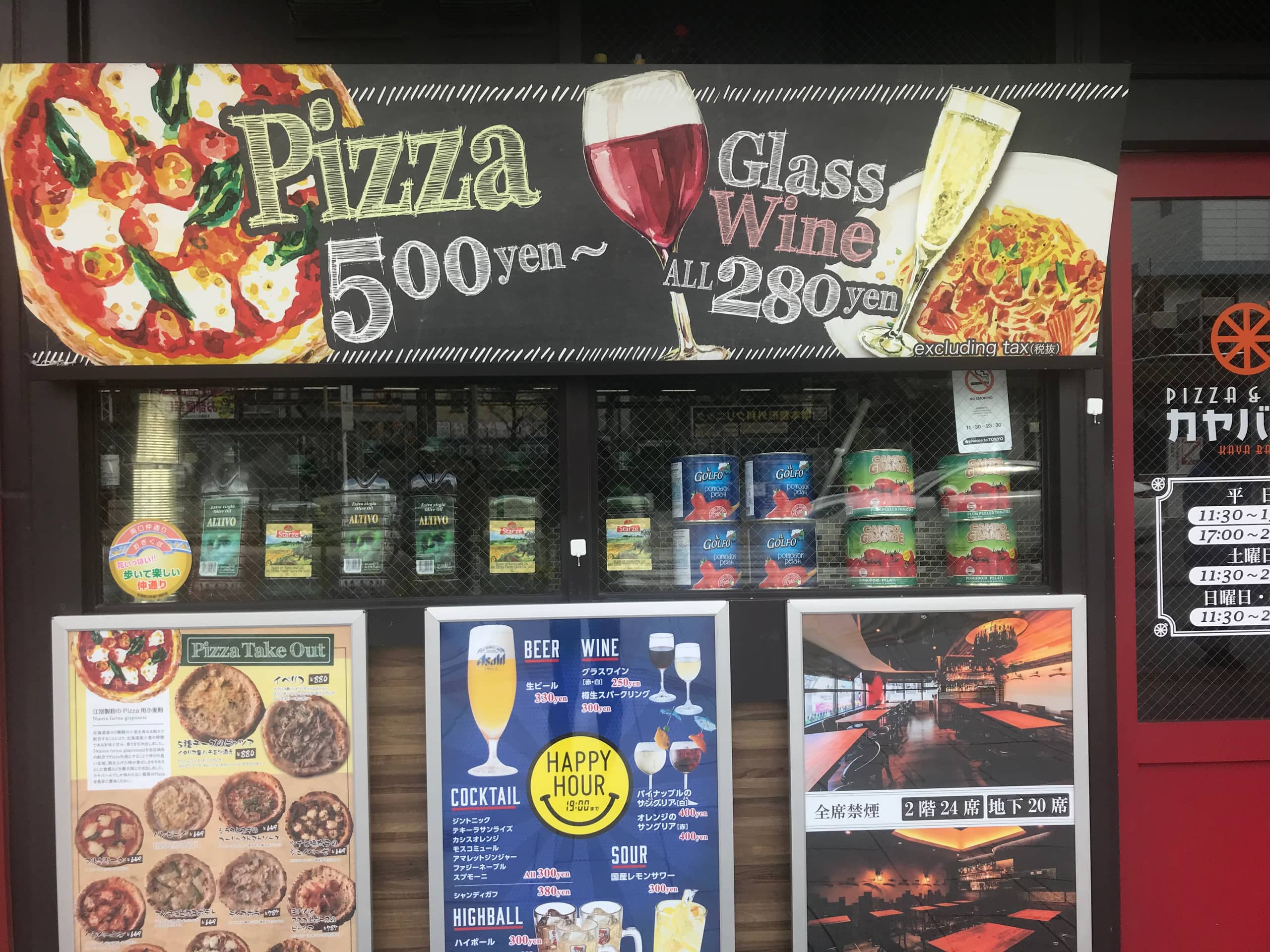
Restaurants mogen open blijven van 5 tot 20 uur onder de regels van noodtoestand. Nadruk ligt meer op lunch en take-out. 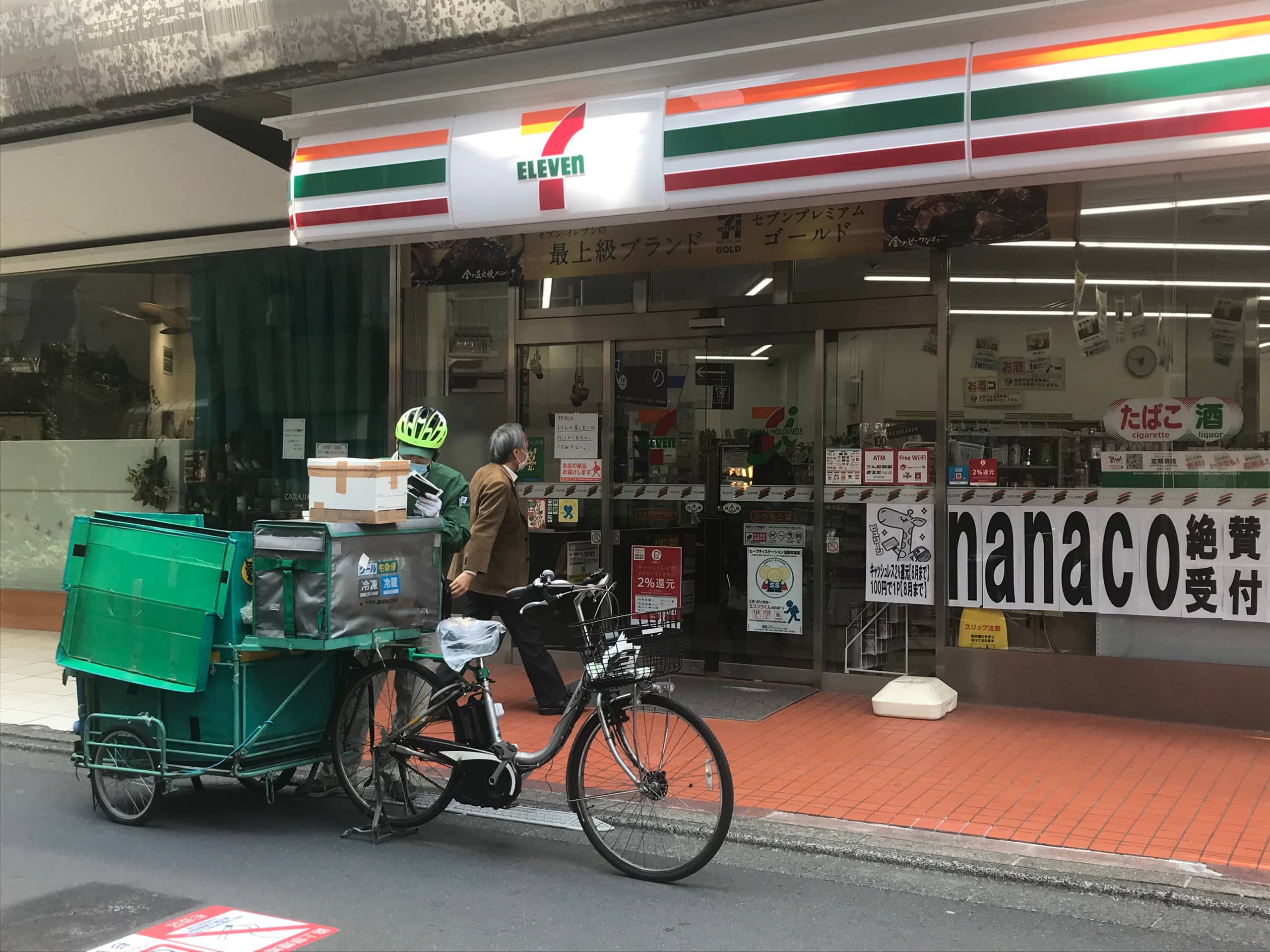
Convenience stores mogen ook open blijven. Weinig invloed op pakketberzorging. 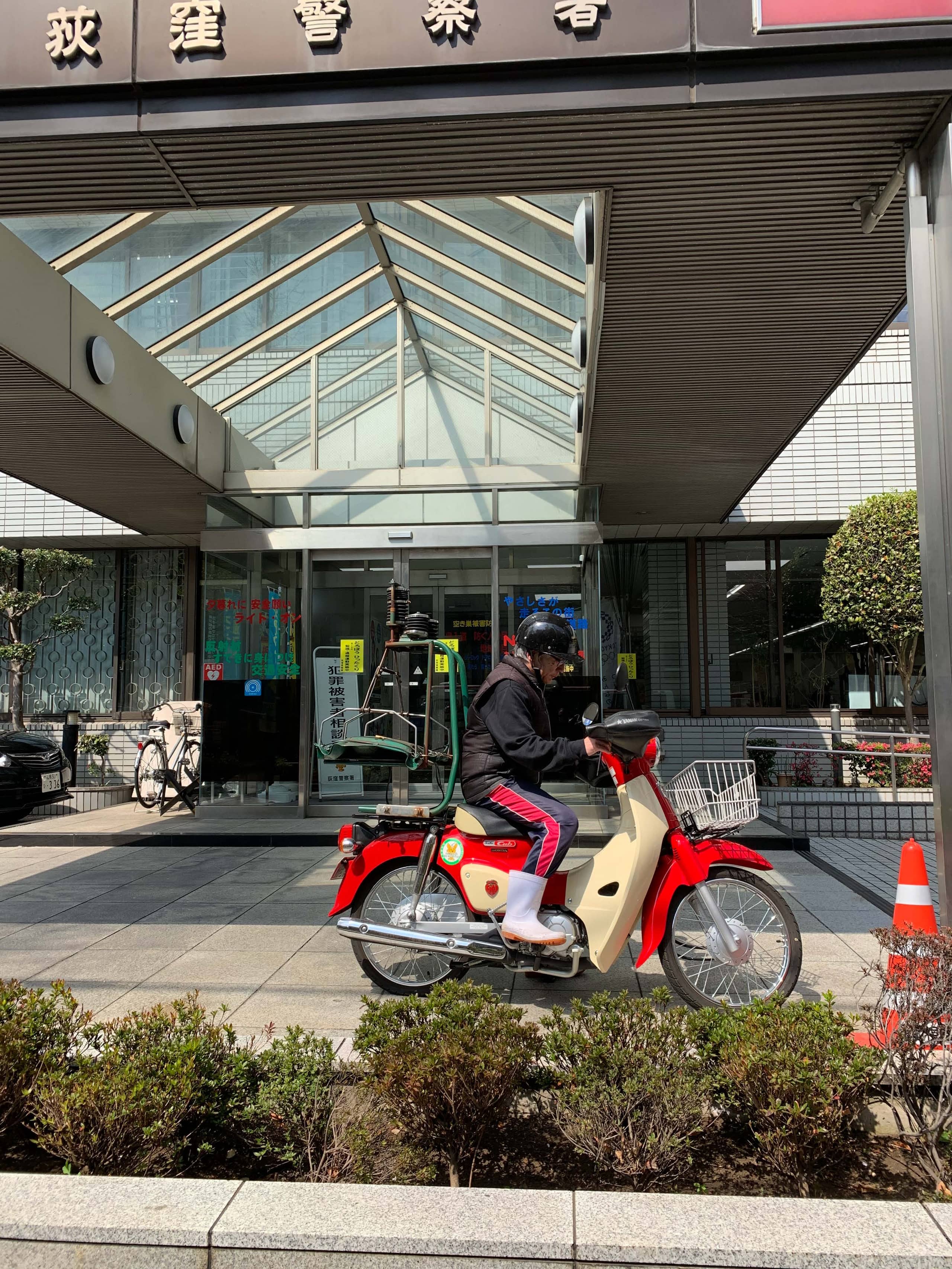
Noedelbezorging bij een plaatselijk politiebureau 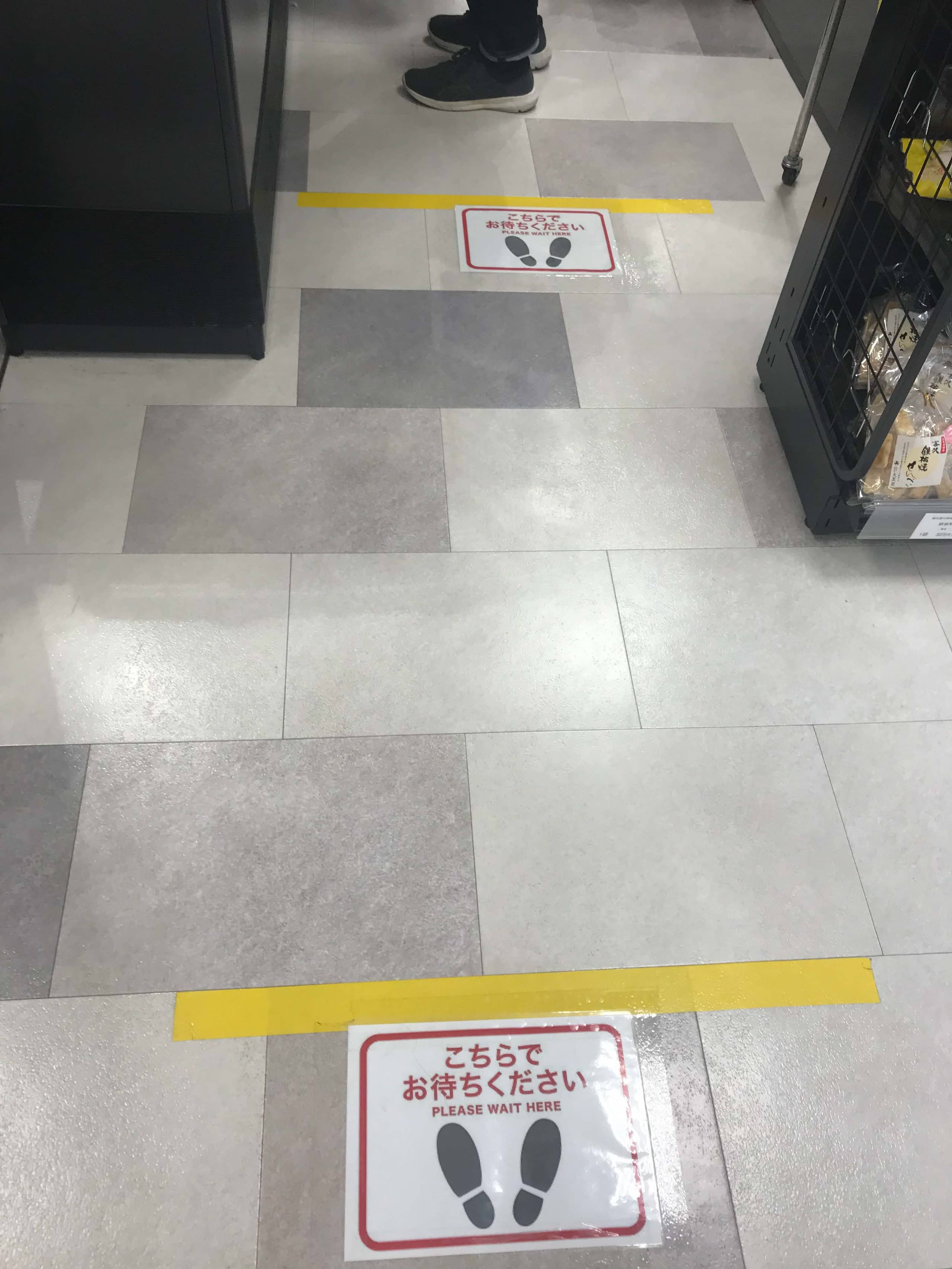
Sociale afstand wordt goed in acht genomen.
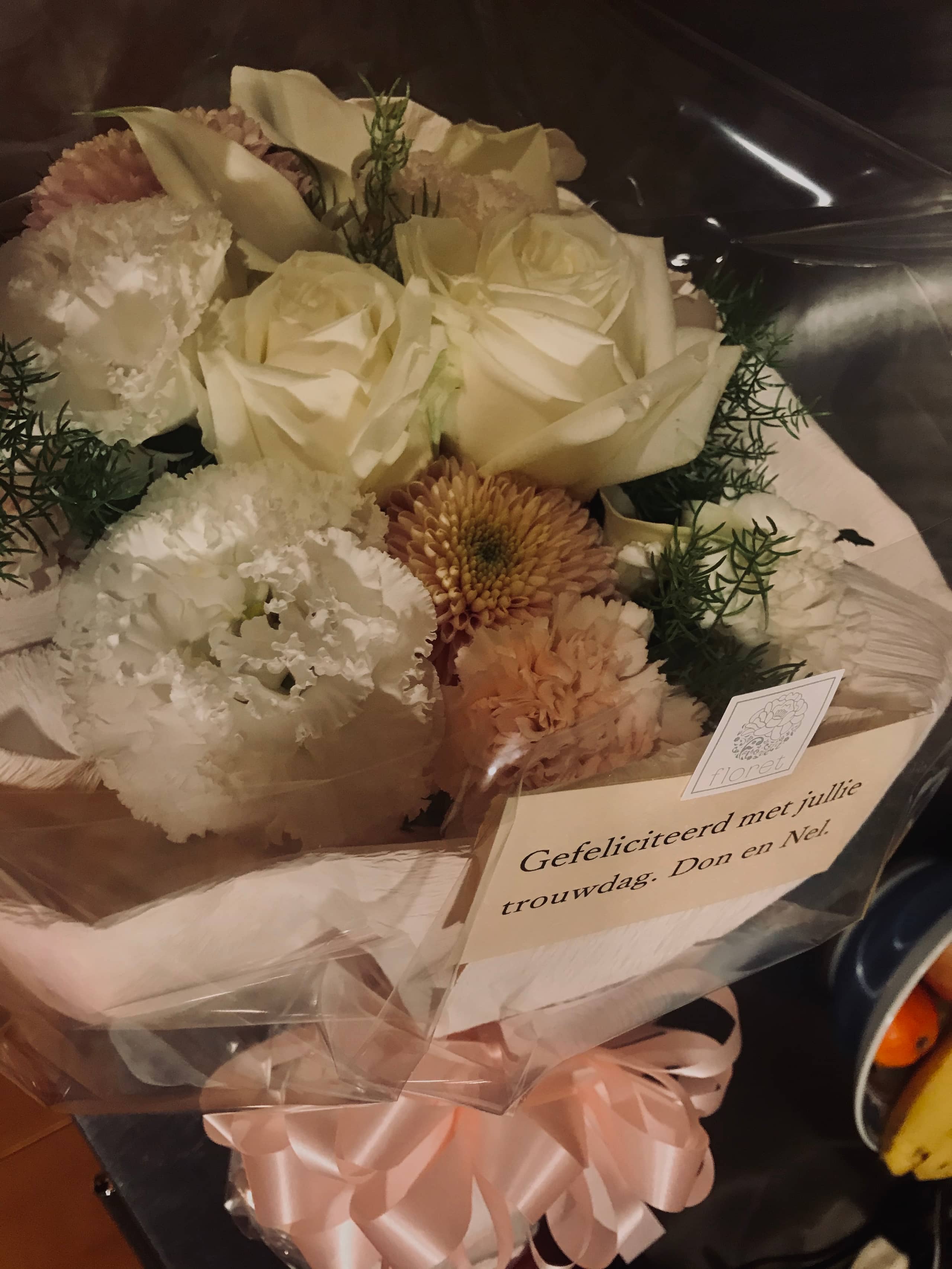
Thuisbezorging van boeketten gaat gewoon door. 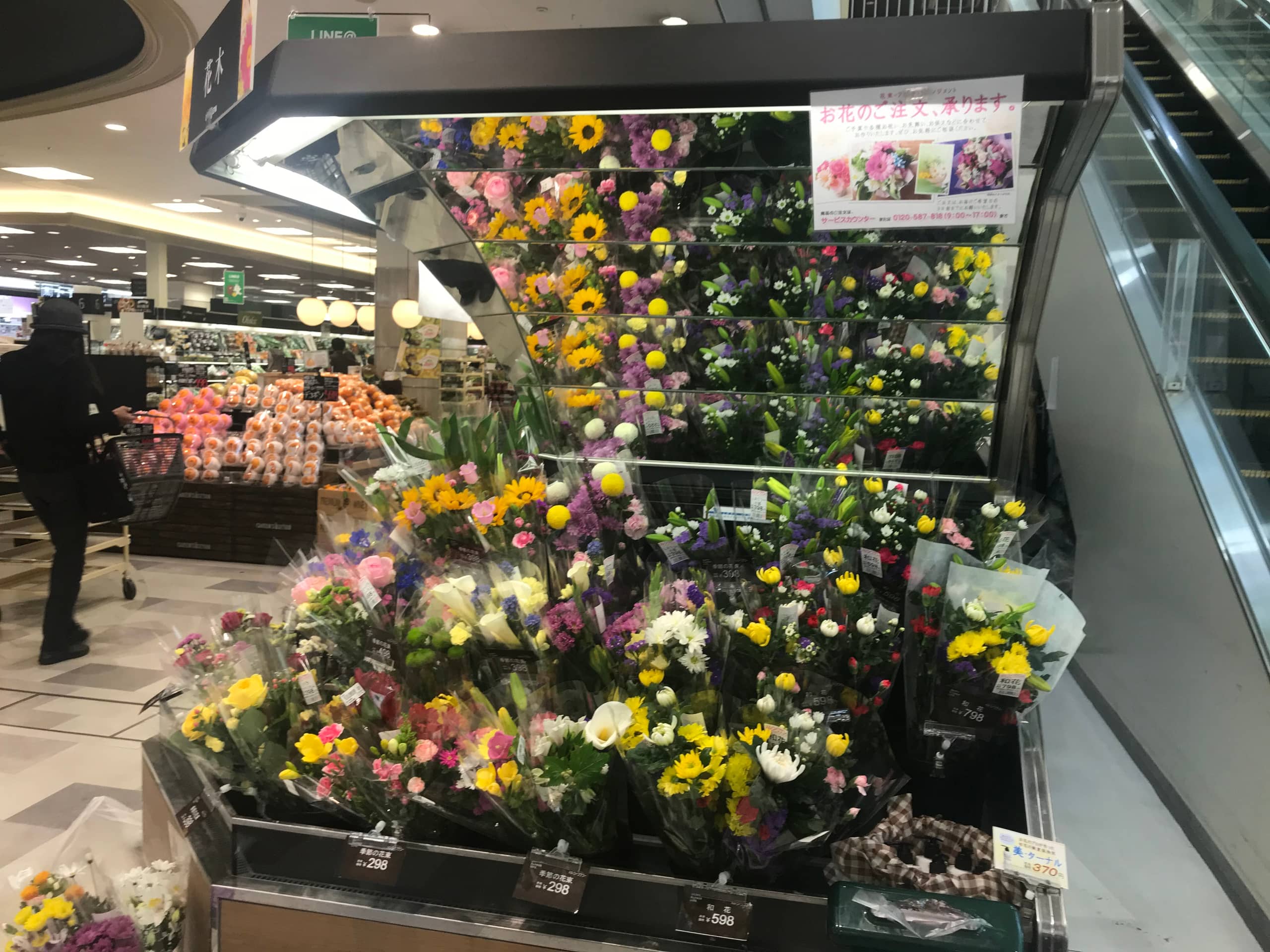
Bloemaanbod in een supermarkt vrijwel niet veranderd 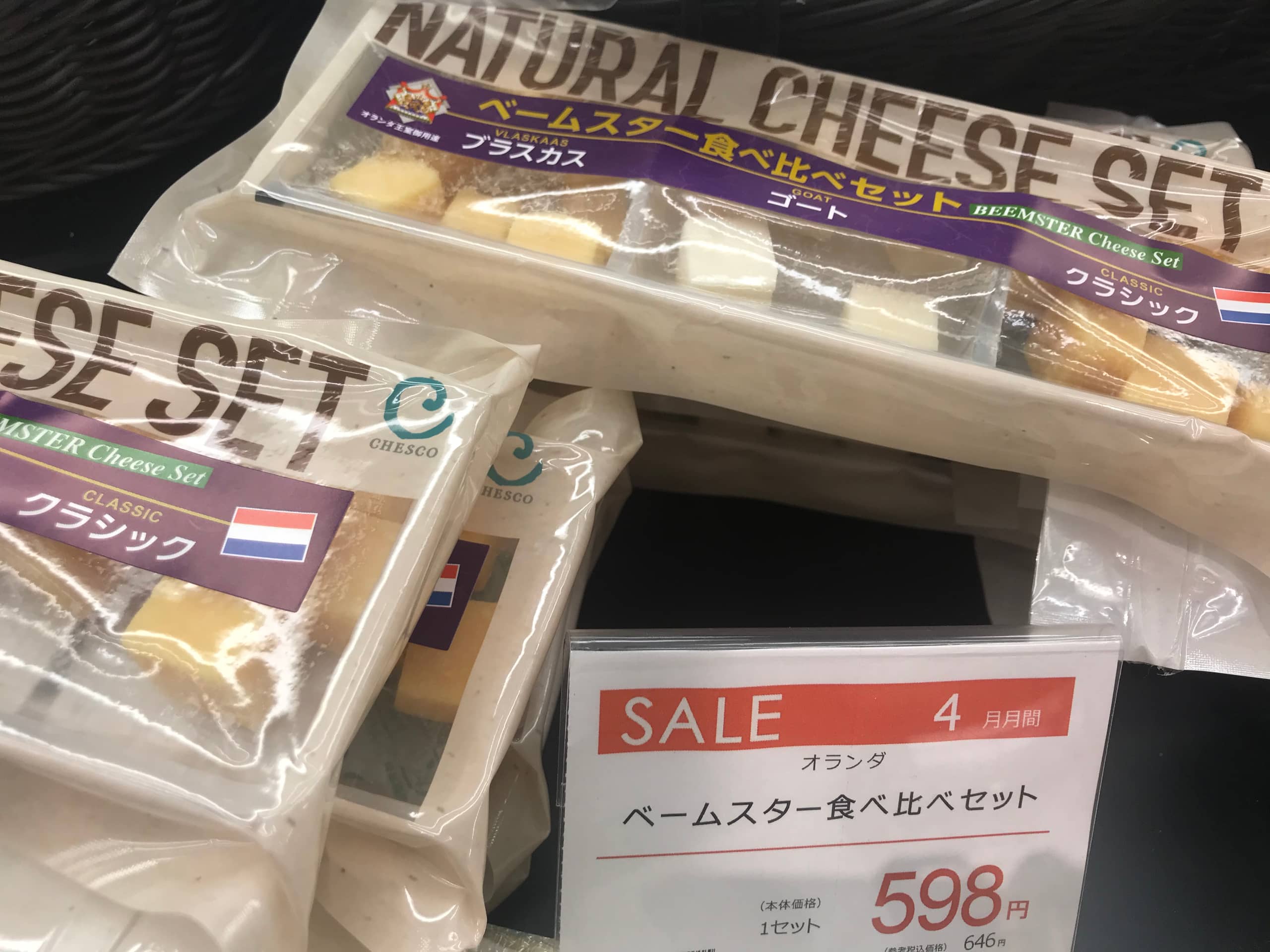
Nederlandse kazen te koop in luxere supermarkt
Week 15 (6 t/m 10 april)
Op 7 april jl. werd de noodstand uitgeroepen door Premier Shinzo Abe, tot en met 6 mei. U leest hieronder een samenvatting van belangrijke nieuwsberichten omtrent het coronavirus en zijn invloed op zaken doen met Japan.
vrijdag 10 april
Agro-economic stimulus package: stimulation domestic demand
As part of the 108 trillion yen emergency stimulus package, the Japanese government approved this week a supplementary budget of 16.7 trillion yen (€140 bn.). The total amount of special agriculture, forestry and fisheries-related budgets is 544.8 billion yen (€4,6 bn.). In the agricultural sector, the government will especially support sales promotion efforts for food products which demand is falling due to the decline in foreign tourists and the ban on banquets. The government will therefore spend 140 billion yen (€1,18 bn.) on sales promotion of domestic beef and marine products. This is to use domestic products for events and school meals in cooperation with local direct sales outlets. In addition to supporting the use of Japanese beef and melons, etc., the government has also recorded 190 billion yen (€1,6 bn.) for promoting the use of flowers at public facilities such as train stations, airports, and public halls. In addition, the government will allocate ¥ 24.2 billion (€204 mln.) to support the purchase of seeds, seedlings and agricultural materials for the next planting of vegetables and fruits. As foreign technical interns who are involved in agricultural work are difficult to come to Japan due to restrictions on immigration, 6 billion yen has been secured as transportation and accommodation expenses when dispatching agricultural college students to farmers with short labor. Furthermore, as there has been no prospect for about 1,700 foreign technical interns in the agricultural field to come to Japan so far due to immigration restrictions, 6 billion yen is included in expenses for the introduction of new technologies utilizing artificial intelligence.
Tourism campaign for economic recovery
For tourism, transportation, restaurants, and event businesses that have been seriously affected, the government will implement a consumption stimulus measure called the "Go To Campaign" for half a year after the spread of infection has stopped. In sightseeing, the government will provide up to 20,000 yen per person per night, equivalent to half the price, for those who purchase travel products through travel agencies and reservation sites. In addition to discounting accommodation charges, the government will issue coupons that can be used at tourist facilities, souvenir shops, restaurants and transportation. In addition, the government make reservations for restaurants through the Internet reservation site, and for consumers who visit the restaurant, the government can give points of up to 1000 yen that can be used at restaurants and issue meal tickets with a 20% discount. At events such as concerts, 20% of the price will be discounted and coupons will be given to people who purchased through a ticket sales company. As a cost for implementing these measures, more than ¥ 1.67 trillion (€14 bn.) is included in the supplementary budget for this fiscal year.
donderdag 9 april
The health ministry team claims that Japan can contain outbreak in one month if people reduce person-to-person contact by 80 percent. On Tuesday, Prime Minister Shinzo Abe declared a state of emergency for Tokyo, Osaka and five other prefectures until May 6. The Health ministry assumes that if person-to-person contact is slashed by 80 percent, the number of infections will fall sharply in some two weeks and the COVID-19 outbreak would be contained.
As a huge importer of agricultural products (self-sufficiency rate: 38% calorie based, 65% valued based) Japan tries to encounter worries of the population, saying there is sufficient supply of food. Farm Minister Taku Eto send a video message to the Japanese people on Tuesday and stressed that there’s no need to worry about food shortages. The food supply network is functioning amid the growing demand for food for families from self-imposed control. Sector organizations (J Milk and Japan Dairy Association) advise consumers to refrain from panic buying. There are sufficient milk and dairy products, and frozen food. Factories are in full operation to cope with the demand. According to the Japanese trading companies, prices of imported fruits, such as banana and avocado, are however expected to rise, as the consumption of households is increasing and supplies from abroad are disturbed by Corona related measures.
woensdag 8 april
All major Japanese media newspapers on their front pages called on readers to remain calm and act responsibly as PM Shinzo Abe declared a state of emergency for seven prefectures up till 6 May to tackle the novel coronavirus outbreak. Some noted that the maturity of democratic society in Japan is being tested, while others said the measure was needed for citizens to be able to return to normal life.
The Economist Corporate Network provide an Corona-update on 3 April. Main conclusions:
- Real GDP and consumption in Japan will start recovering only in Q4 of 2020
- Retail sales in Japan. Department stores are taking a hit, while supermarkets see 6% YoY increase. Department store sales are estimated to drop -40% YoY in March 2020
- Industrial production in Japan is expected to drop 5-6% in March 2020. April 2020 could see a bigger drop of around 8% as more manufacturing companies are shutting their plants
Not much influence of Corona-crisis on prices of Japanese vegetables. Onions and potatoes are at lower prices than normal. The price of vegetables in April are expected to be about the same as those in an average year for the 10 items (including tomato and spinach) out of the 14 items surveyed. Among them, green onions and lettuce grow well in the production areas, and steady shipments are expected. In addition, shipments of onions and potatoes are increasing due to the effects of warm winter, and are expected to be cheaper than normal. Chinese cabbage was 12% higher than the previous week at 253 yen per kilogram. It was 15% higher than normal. Spinach was 11% higher than the previous week at 818 yen. It was also 10% higher than normal. Bad weather conditions in production areas such as Gunma and Saitama was one of the reasons.
dinsdag 7 april
De Japanse premier Abe kondigde maandag 6 april een noodpakket aan van 915 miljard euro, ofwel eenvijfde van het Japanse nationaal inkomen. Japan hoopt er de economische klappen van de coronacrisis mee op te vangen. Ruim 50 miljard euro moet direct ten goede komen aan burgers en het midden- en kleinbedrijf. En bedrijven in nood hoeven voorlopig geen belasting en sociale lasten op te hoesten.
Naast de financiële maatregelen kondigde Abe ook de noodtoestand voor 4 weken af in Tokio, Osaka, Kanagawa, Saitama, Chiba, Hyogo en Fukuoka prefectuur. De maatregel zal met name worden ingezet voor het sluiten van: pubs, shopping malls en amusementketens (bv. karaoke en bioscopen). De treinen zullen echter rijden en de supermarkten blijven open. Supermarktketens als Lawson, en Seven Eleven gaven aan normaal te blijven functioneren, al gaan sommige winkels eerder dicht. Vers vlees, groente en bloemen zijn voldoende aanwezig.
maandag 6 april
Premier Abe roept vandaag noodtoestand uit in geteisterde prefecturen. Na opnieuw een flinke stijging van het aantal Corona-gevallen, 143 in Tokio op zondag, was dit besluit onvermijdelijk geworden. Het besluit betekent geen lockdown, maar geeft aan prefecturen, zoals Tokio, nu wel de mogelijkheid om scholen, pubs en bioscopen te sluiten en samenscholing tegen te gaan. Overigens liet Tokio de afgelopen dagen al een verlaten beeld zien en waren veel shopping malls al gesloten, nadat gouverneur Koike had de mensen had opgeroepen thuis te blijven.
De Japanse regering biedt zo’n €2.500 cash aan ca. 10 miljoen gezinnen die in moeilijkheden zijn gekomen door de Corona-crisis. De maatregel maakt onderdeel uit van een meer omvattend economisch stimuleringsplan om de economische en sociale gevolgen te ondervangen.
Het aantal internationale vluchten van en naar Japan is enorm afgenomen. Japans grootste luchtvaartmaatschappij All Nippon Airways (ANA) kondigde aan tot 24 april 87% van hun vluchten (4.057 vluchten op 72 routes) te schrappen. ANA gaat wel 172 extra vrachtvluchten inzetten tussen Narita, Shanhai, Dalian, Hong Kong, Taipei en Bangkok. Om mogelijke liquiditeitsproblemen tegen te gaan, heeft ANA de overheid om een nieuwe kredietlijn van ¥1.3 trillion (ca. €11 miljard) gevraagd.
E-commerce zit in Japan in de lift. Vorig jaar werd zo’n ¥550 miljard omgezet via home-shopping, en bedroeg de gehele e-commerce markt ca. ¥10 triljoen. In 2020 zal dit naar verwachting met zeker 20% groeien naar 12 triljoen (€102 miljard) . Het corona-virus zal hier ongetwijfeld verder nog een impuls aan geven.
Coronacrisis stort Japanse wagyu sector in een crisis. Door het coronavirus eten veel Japanners niet meer buiten de deur en blijven de toeristen weg, met als gevolg dat de peperdure stukken rundvlees in de koeling liggen. De Japanse regering had de productie de laatste jaren flink gestimuleerd. Vooral elders in Azië stijgt de vraag, maar met het vrijhandelsverdrag hoopte Japan ook op meer export naar Europa. Door de crisis kelderen echter de prijzen en het vlees hoopt zich snel op in de Japanse koelopslag. Een kilo Wagyu (karkasprijs) kost nu minder dan ¥2.000 (€17).
